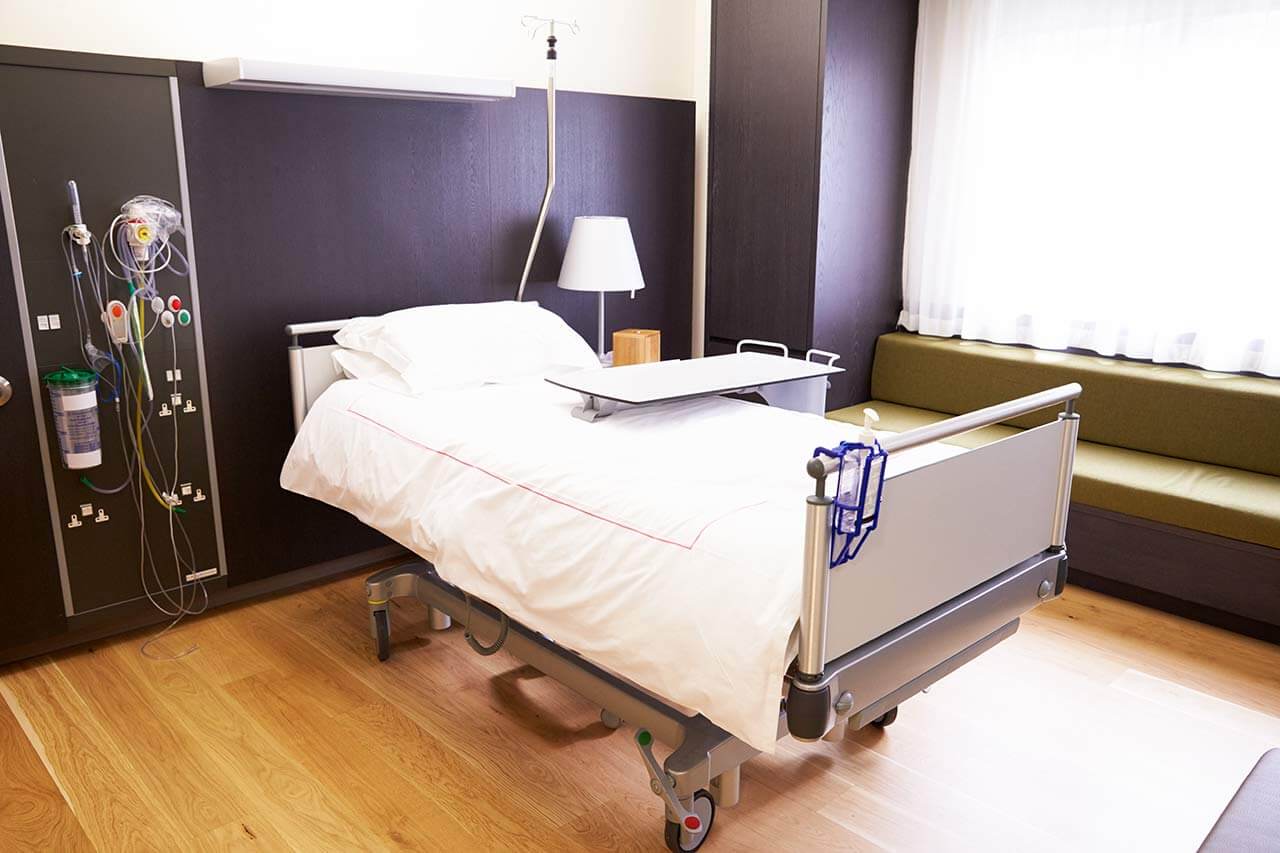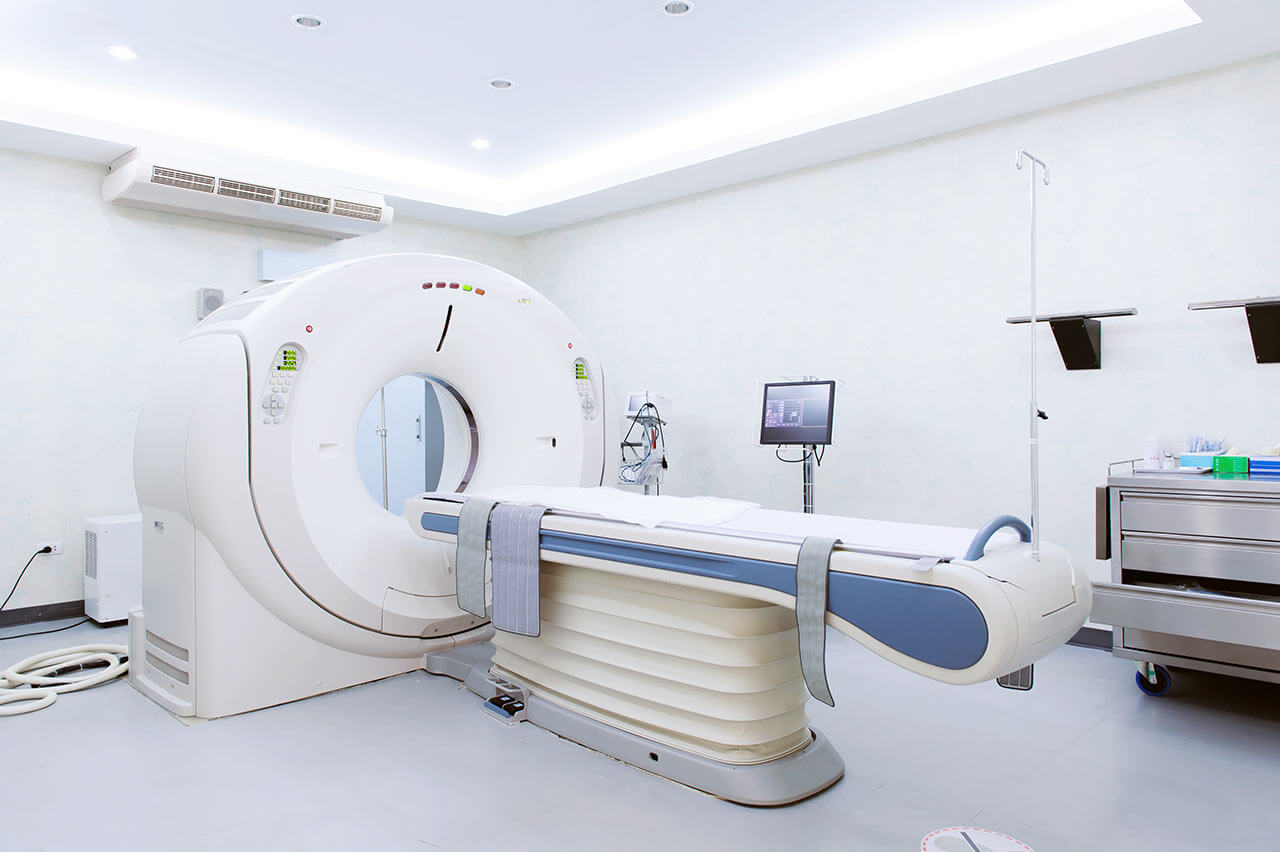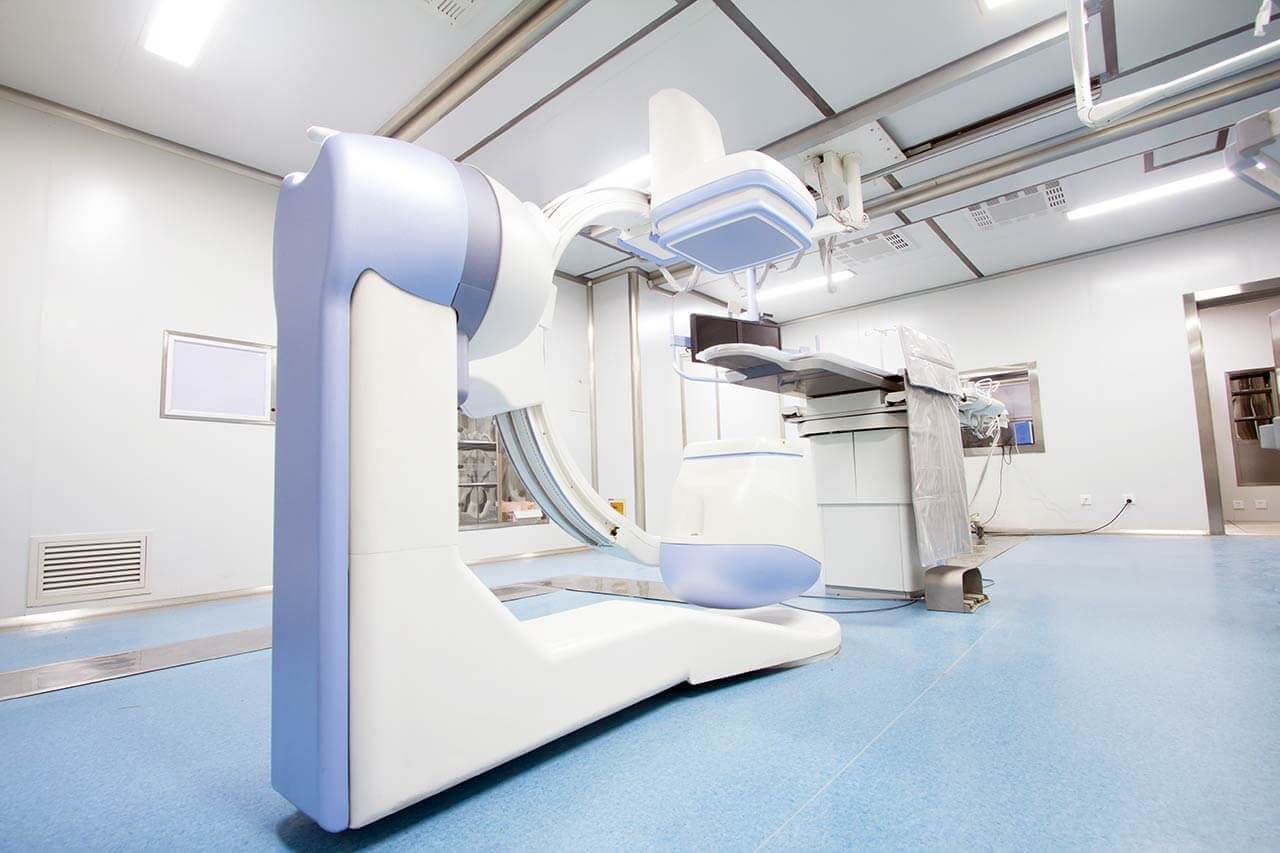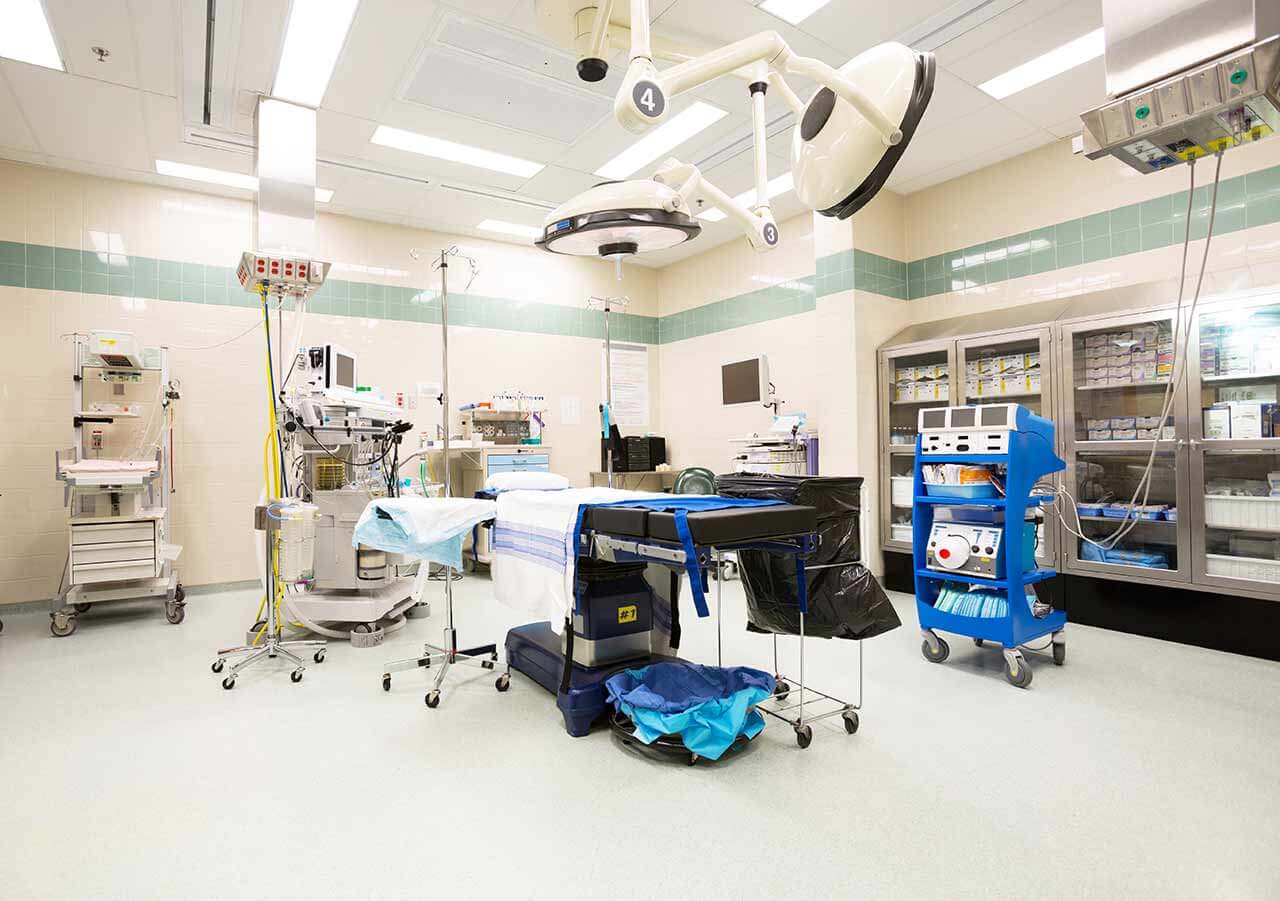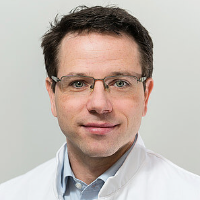
About the Department of Endocrinology and Metabolic Disorders at Charite University Hospital Berlin
According to the Focus magazine, the Department of Endocrinology and Metabolic Disorders at the Charite University Hospital Berlin is one of the best medical facilities in Germany for the treatment of diabetes mellitus!
The department offers a full range of preventive, diagnostic, and therapeutic services in its areas of specialization, while maintaining the highest standards of university medicine. The department provides medical care for patients with morbid obesity, arterial hypertension, diabetes mellitus type 1 and 2, thyroid diseases, bone metabolism disorders with a special emphasis on osteoporosis, and diseases of the pituitary gland and adrenal glands. In cooperation with endocrine surgeons and oncologists, the department's specialists provide comprehensive treatment of malignant tumors of the thyroid gland, parathyroid glands, adrenal glands, and pituitary gland. The medical facility admits patients with rare endocrine diseases and metabolic disorders and has extensive clinical experience in this area. In most cases, patients are examined and treated on an outpatient basis. The medical services of the department meet the requirements of the German Society of Endocrinology (DGE) and the German Diabetes Society (DDG). The department is headed by Prof. Dr. med. Knut Mai.
The department's team of endocrinologists offers the widest range of medical services for the diagnosis and treatment of diabetes mellitus. The main symptom of this endocrine disease is a persistent increase in blood glucose levels. The first stage of the therapeutic process is an individual consultation. This is followed by a comprehensive examination, including a blood glucose test, glycosylated hemoglobin and fructosamine blood tests, a glucose tolerance test, an assessment of insulin resistance, and a C-peptide test. If the diagnosis is confirmed, the specialists at the medical facility will develop a treatment plan: for type 1 diabetes, the main treatment method is insulin therapy in combination with diet therapy and regular dosed physical activity; for type 2 diabetes, lifestyle changes with weight control are usually sufficient to control blood glucose levels, and drug treatment with oral hypoglycemic agents is often used. Diabetes mellitus is a chronic disease, so the main goal of the department's team of doctors is effective control of the pathology, prevention of its progression, and development of complications. The specialists of the medical facility are also competent in the treatment of such rare forms of diabetes mellitus as MODY diabetes, MIDD diabetes, and LADA diabetes.
The department regularly treats patients with morbid obesity, a condition that significantly increases health risks. Patients with morbid obesity often suffer from comorbidities such as arterial hypertension, diabetes mellitus, and lipid metabolism disorders. When developing a personalized obesity treatment plan, the department's specialists aim to achieve significant weight loss and long-term weight control through comprehensive lifestyle changes. The department's physicians prefer a multimodal approach to the treatment of morbid obesity, combining intensive physical training, dietary therapy, drug therapy, and qualified psychological care. Complex cases of morbid obesity may require bariatric surgery, such as gastric banding, gastric bypass, or sleeve gastroplasty. These surgical procedures are performed by specially trained surgeons.
An integral part of the clinical activities of the department's medical team is the diagnosis and treatment of thyroid diseases. The facility consults patients with highly and poorly differentiated thyroid cancer, C-cell thyroid cancer, thyroid nodules, hyperthyroidism (overactive thyroid), hypothyroidism (underactive thyroid), thyroiditis (thyroid inflammation), goiter, iodine deficiency, Hashimoto's disease, and other conditions. The department has a state-of-the-art hormone diagnostic laboratory and ultrasound facilities. Fine-needle aspiration puncture biopsy, scintigraphy, and MSCT of neck soft tissues are performed in collaboration with specialized experts. Patients are most commonly treated with hormone replacement therapy. If necessary, radioiodine therapy and surgical treatment are performed in collaboration with endocrine surgeons and nuclear medicine specialists.
The physicians in the department have extensive clinical experience in the treatment of rare metabolic disorders. Of particular interest to the medical team is the care of patients with amino acid metabolism disorders (for example, phenylketonuria, alkaptonuria, and leucinosis), lysosomal storage diseases (for example, Gaucher disease, Pompe disease, and mucopolysaccharidosis), carbohydrate metabolism disorders (for example, galactosemia, fructosemia, and hereditary fructose intolerance), fatty acid oxidation disorders (for example, MCAD deficiency and carnitine palmitoyltransferase deficiency), and congenital disorders of glycosylation. Treatment includes diet therapy, enzyme replacement therapy, symptomatic treatment, and other methods.
The range of medical services provided by the department includes the following:
- Diagnostics and treatment of diabetes mellitus, including rare forms of the disease
- Diabetes mellitus types 1 and 2
- MODY diabetes
- MIDD diabetes
- LADA diabetes
- Lipoatrophic diabetes mellitus
- Diagnostics and treatment of morbid obesity
- Diagnostics and treatment of thyroid diseases
- Highly and poorly differentiated thyroid cancer
- C-cell thyroid cancer
- Thyroid nodules
- Hyperthyroidism
- Hypothyroidism
- Thyroiditis, including Hashimoto's thyroiditis
- Goiter
- Iodine deficiency
- Diagnostics and treatment of arterial hypertension caused by hormonal imbalances
- Diagnostics and treatment of pituitary diseases
- Pituitary tumors
- Pituitary adenomas
- Prolactinomas
- Thyrotropinomas
- Cushing's syndrome
- Acromegaly
- Pituitary insufficiency
- Pituitary tumors
- Diagnostics and treatment of adrenal diseases
- Cushing's syndrome
- Primary hyperaldosteronism (Conn's syndrome)
- Pheochromocytoma
- Hereditary adrenogenital syndrome
- Primary adrenal insufficiency (Addison's disease)
- Diagnostics and treatment of osteoporosis
- Diagnostics and treatment of sexual dysfunction in women and men
- Diagnostics and treatment of rare metabolic disorders
- Amino acid metabolism disorders
- Lysosomal storage diseases
- Carbohydrate metabolism disorders
- Fatty acid oxidation disorders
- Congenital disorders of glycosylation
- Diagnostics and treatment of other endocrine diseases
The range of therapeutic services provided by the department includes the following:
- Insulin therapy, oral hypoglycemic drugs, and diet therapy for diabetes mellitus
- Drug therapy
- Hormone replacement therapy
- Enzyme replacement therapy
- Radioiodine therapy (in collaboration with nuclear medicine specialists)
- Other treatment methods
Curriculum vitae
Prof. Dr. med. Knut Mai has been the Head Physician of the Department of Endocrinology and Metabolic Disorders at the Charite University Hospital Berlin since October 1, 2024. He studied medicine at the Free University of Berlin and at the Humboldt University of Berlin, where he defended his thesis at the Department of Nuclear Medicine in 2007. Since 2011, Prof. Knut Mai has held the position of Senior Physician and then Managing Senior Physician in the Department of Endocrinology and Metabolic Disorders. In 2012, the specialist completed his habilitation procedure and received the Venia legendi in Endocrinology. Prof. Knut Mai is board certified in Internal Medicine (2009), Endocrinology (2014), and Diabetology (2015). From 2017 to 2022, he also held the position of Professor for the Development of Diabetes Therapy at the Charite University Hospital Berlin, funded by the German Foundation for the Promotion of the Sciences and Humanities. Dr. Knut Mai's successful clinical and research work has been recognized with numerous prestigious awards and prizes, including the Menarini Prize from the German Diabetes Society (DDG).
Photo of the doctor: (c) Charité – Universitätsmedizin Berlin
